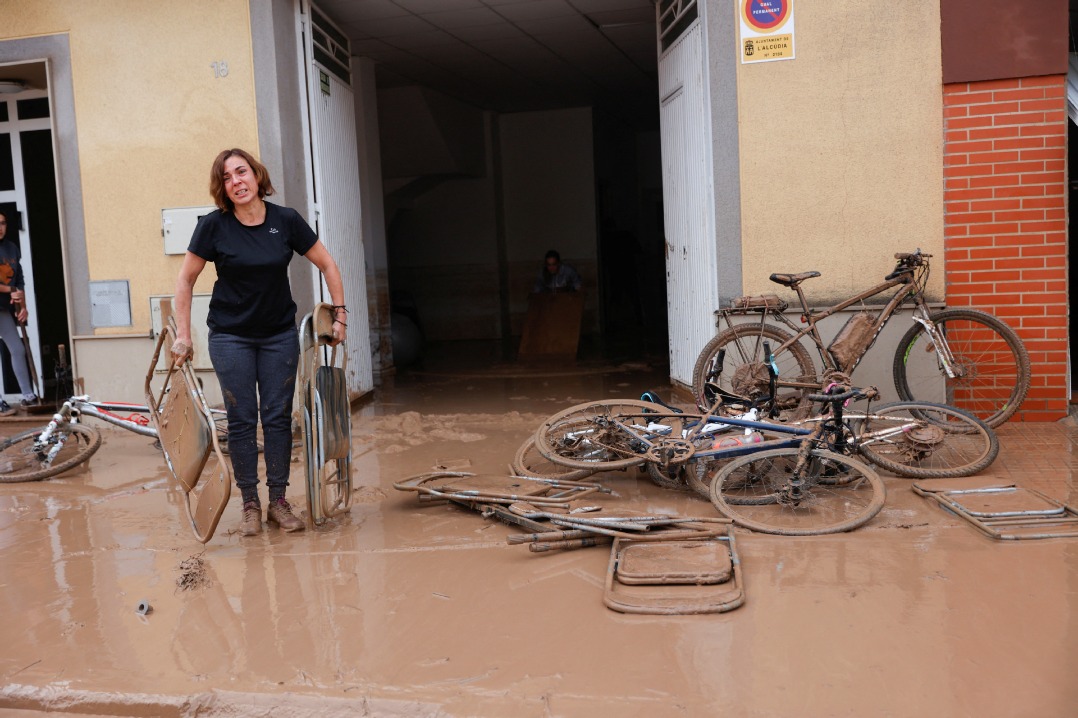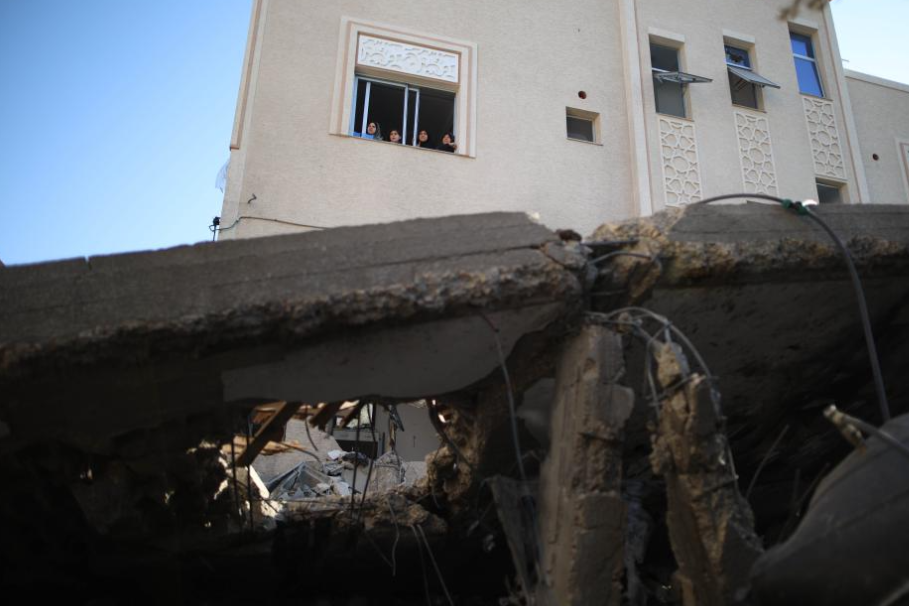Cold-War mentality makes no sense

It is not only those concerned with sustainable development and improving the living conditions of the greatest possible number of people, but all rational human beings that are bewildered by the atmosphere of seemingly a second Cold War that has emerged in recent years and the accompanying increased arms spending. The world spent approximately $2.4 trillion on the military in 2022 according to data published by the Stockholm International Peace Research Institute. Naturally, everywhere such as spending is said to be for "national defense".
For the most part, this is an obvious waste of resources. There are not enough funds for the investments in human capital that improve infrastructure that makes business operations and people's lives easier. The China-proposed Belt and Road Initiative contributes significantly to this cause, yet more must be done.
It is estimated that there are around 650 million people still living in abject poverty today.
If only half of resources being spent on the worldwide military build-up were aptly allocated for the fight against extreme poverty, it could be radically reduced, if not entirely eliminated. It is enough to recall how much the number of destitute people fell in the early 1990s during just a few years after the end of the previous Cold War, as a result of the shift of funds from military spending to peaceful development.
It is true that in the short term, arms spending can boost economic growth, if it is invested in the domestic industry, as in the US, whose military budget this year is a record $886 billion. This is more than the military expenditure of the next 11 countries combined, starting with China and Russia, which spend one-third and one-tenth respectively of what the US does (relatively, in relation to GDP, 1.6 and 4.1 percent, respectively, while the US spends 3.5 percent), and ending with the Republic of Korea, Japan, and Italy. Only eighteen countries have a national income greater than US military spending. Maintaining 750 military bases and installations in over 80 countries costs money, after all.
It is a fact that military expenditure can be a vehicle for technological progress, without which there is no economic development in the long term, but progress can just as well be stimulated by spending more on various technologies in peaceful sectors. In particular, investments in the green energy transition to combat global warming have similar multiplier and employment effects. China is engaging in such a path of restructuring more than any other large economy.
In the haze of the Cold War, a lot of people lose their ability to think clearly and allow themselves to be led astray in the name of ill-conceived political correctness. Creating an atmosphere of fear makes it easier to manipulate public opinion, which the military lobbies want on their side. And, unfortunately, they succeed. The British author Robert Peckham in his recently published book entitled Fear: An Alternative History of the World quotes the arch-fascist Hermann Goring on how it works: "All you have to do is tell[the people]they are being attacked and denounce the pacifists for their lack of patriotism and exposing the country to danger." It's amazing that something similar can happen today in countries that like to talk so loudly about their democracy…
What is also puzzling is why diplomacy, especially that of the world's foremost power, the US, is so inept at preventing the escalation of conflicts. While China succeeded in bringing about a breakthrough in the previously very tense relations, threatening a military clash between the regional powers, Iran and Saudi Arabia, President Joe Biden's diplomacy was unable to stop Israel from launching an all-out attack on the Gaza Strip. Six visits of Antony Blinken, US Secretary of State, to the Middle East during the first six months of the armed clashes have been more than modest. The right to defend oneself does not mean consent to a massive military action which has the nature of a war crime.
Such a situation is convenient to the companies producing arms and countries exporting them. The military-industrial lobby and pro-war interest groups have a stronger voice than the poorly organized peace advocates and sustainable development supporters. As the current cold-war mentality intensifies, the US arms exports — which constitutes 37 percent of global trade in this field and which are sold to 96 countries — increased by 16 percent in 2023, to $238 billion. Three-fourths of countries in this destabilized world have lower GDP.
We are the witnesses to and participants in a change of epochs. Unfortunately, we are too passive regarding the new Cold War fever, but it is only a matter of time before waves of mass antiwar protests spill over, similar to those opposing the dirty Vietnam War two generations ago. It is hard to imagine that, without a radical reversal of the costly arms race, the overheating of the climate, which is devastating the economy and the lives of billions of people, can be effectively blocked peacefully and democratically. Imaginably, it will be necessary to resort to authoritarian systems and the use of force to achieve this if democracy will not be able to accomplish it.
We hear of defense against hostile aggression and of glorious struggles in the name of independence, sovereignty and democracy, but contemporary cold and hot war clashes are linked also with tectonic geopolitical changes that are not convenient to everyone. Russia is still unable to come to terms with the loss of its formerly strong position after the collapse of the Soviet Union. The US cannot accept the fact that its global hegemony is out of date. Nostalgia for the times of colonial power still casts a long shadow over the United Kingdom and France.
Instead of a confrontation between the West, led by the US, and the East, with China holding a dominant position — which pessimists predict is inevitable — the disparate two mega-systems, Euro-Atlantic and Euro-Asian, can compete peacefully. The strengthening of transnational economic, cultural and diplomatic levers would render the military ones useless. In both blocs, a key role should be played by the European Union, which belongs to each of them and does not have to take sides in the US-China disagreements. Nothing is more damaging to sustainable development and inclusive globalization than the economic irrationality of the Cold War.
China can play a fundamental role in maintaining peaceful development paths, especially by intensifying the Belt and Road Initiative. The economic expansion observed within it is fundamentally different from the American expansion in the field of arms exports. For someone to buy US weapons, severe political tensions are needed. For anyone to benefit from Chinese foreign investments in infrastructure development and human capital, a peaceful vision of development is necessary.
The author is a director of TIGER (Transformation, Integration and Globalization Economic Research) at Kozminski University in Warsaw, former deputy prime minister and minister of finance of Poland, and a distinguished professor of the Belt and Road School of Beijing Normal University.

































